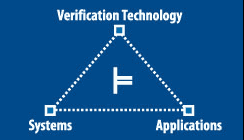
The summer school on verification technology, systems & applications takes place at the Montefiore Institute (University of Liège) from September, 19th-23th, 2011. We believe that all three aspects verification technology, systems & applications strongly depend on each other and that progress in the area of formal analysis and verifiation can only be made if all three aspects are considered as a whole. Our five speakers Alessandro Armando, Franz Baader, Bruno Blanchet, Florent Jacquemard, and Joost-Pieter Katoen stand for this view in that they represent and will present a particular verification technology and its implementation in a system in order to successfully apply the approach to real world verification problems.
The number of participants in the school is limited to 40. We expect participants to hold a bachelor (or higher) degree in computer science (or equivalent) and to have basic knowledge in propositional and first-order logic.
The summer school is free of charge. It includes the lectures, daily coffee breaks and lunches and the special summer school dinner on Wednesday. Participants take travel, accomodation and daily living costs on their own. Recommendations on hotels can be found below.
Please apply electronically by sending an email to vtsa11@montefiore.ulg.ac.be including
until the 22nd of July, 2011. Notifications on acceptance will be given by 12th of August, 2011.
The registration will be open to accepted applicants starting on 19th of August, 2011.
All lectures will take place in room R3 at the Montefiore Institute.
| September 19 Monday |
September 20 Tuesday |
September 21 Wednesday |
September 22 Thursday |
September 23 Friday |
|
|---|---|---|---|---|---|
| 9.00-12.30 | Bruno Blanchet Slides Intro Slides ProVerif |
Bruno Blanchet Slides Intro Slides ProVerif |
Joost-Pieter Katoen Slides Part 2 |
Florent Jacquemard Slides |
Alessandro Armando Slides Part 1 |
| 12.30-14.00 | Lunch break | ||||
| 14.00-17.20 | Florent Jacquemard Slides |
Joost-Pieter Katoen Slides Part 1 |
Franz Baader Slides 1 2 3 4 5 6 |
Franz Baader Slides 1 2 3 4 5 6 |
Alessandro Armando Slides Part 2 |
| 17.30-18.30 | Presentations by participants | Presentations by participants | Presentations by participants | ||
| Evening | School Dinner | ||||
Alessandro Armando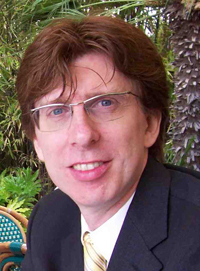
|
Session 1: The Rewriting Approach to Decision Procedures Session 2: Automatic Symbolic Analysis of Access Control Policies |
|
Franz Baader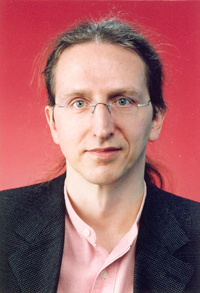
|
Reasoning in Description Logics This tutorial concentrates on designing and analyzing reasoning procedures for DLs. After a short introduction and a brief overview of the research of the last 20 years, it will on the one hand present approaches for reasoning in expressive DLs, which are the foundation for reasoning in OWL DL. On the other hand, it will consider reasoning in the more light-weight DLs EL and DL-Lite, which are the foundation for the more tractable OWL 2 profiles OWL 2 EL and OWL 2 QL. |
|
Bruno Blanchet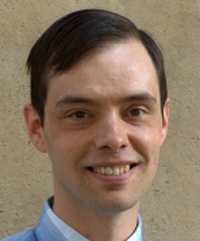
|
Automatic Verification of Security Protocols: the verifier ProVerif |
|
Florent Jacquemard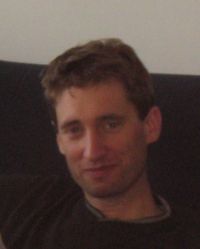
|
Tree automata techniques for the verification of infinite state-systems In this tutorial, we will present classes of tree automata over ranked and unranked trees, and their properties and decision procedures interesting in the context of verification. We will also present how their expressiveness can be extended with some constraints, and by considering tree languages modulo equational theories. |
|
Joost-Pieter Katoen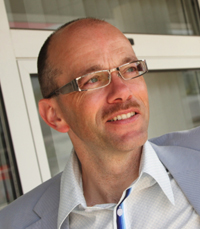
|
Verification and Abstraction of Continuous-Time Markov Models The lectures will focus on the analysis of CTMCs using model checking. Both temporal-logic based model checking as well as (timed) automata-based model checking will be considered. Equivalences and pre-orders are covered and we'll discuss which logical fragments are preserved by them. Finally, we introduce three-valued abstraction on CTMCs, and apply it to the analysis of examples from systems biology and (large) queueing networks. As outlook, we'll discuss recent progress on the analysis of continuous-time Markov decision processes. |
The participants are responsible for their room reservations.
Here is a map where most hotels are represented.
You can also have a look at informations provided by the tourism office.
Hotel Mercure
Price for single/double room 110/126 euros, breakfast included.
Please use this form.
Bd de la Sauvenière, 100
B-4000 Liège
Tel: + 32 (0) 4/221 77 11
Fax: + 32 (0) 4/221 77 01
Email: mercureliege@alliance-hospitality.com
Alliance Hotel Palais des Congrès
Price for single/double room 110/126 euros, breakfast included.
Please use this form.
Esplanade de l'Europe 2
B-4020 Liège
Tel: + 32 0) 4/342 60 20
Fax: + 32 (0) 4/343 48 10
Email: ahliege@alliance-hospitality.com
Best Western Univers Hotel
Price for single/double room 68/79 euros, breakfast included
To get this price, when booking a room please specify : "VTSA 2011-Universite de Liège".
When booking a room, also provide all the necessary
credit card informations and DON'T use independent booking website
(otherwise, it is not possible to have this special rate).
Rue des Guillemins 116
B-4000 Liège
Tel : + 32 (0) 4/254 55 55
Fax: + 32 (0) 4/254 55 00
Email: univershotel@skynet.be
www.univershotel.be
Husa de la Couronne
Price for a room 100 euros, breakfast included
To get this price, when booking a room please specify : "VTSA 2011-Universite de Liège".
When booking a room, also provide all the necessary credit card
informations and DON'T use independent booking website
(otherwise, it is not possible to have this special rate).
Place des Guillemins 11
B-4000 Liège
Tel: + 32 (0) 4/340 30 00
Fax: + 32 (0) 4/340 30 01
Email: info.couronne@husa.es
www.hotelhusadelacouronne.be
Hotel Ibis Liège Centre Opera
Price for single/double room 82/96 euros, breakfast included.
To get this price, when booking a room please specify : "VTSA 2011-Universite de Liège".
When booking a room, also provide all the necessary credit card informations and DON'T use independent
booking website (otherwise, it is not possible to have this special
rate).
Place de la République Française, 41
B-4000 Liège
Tel: + 32 (0) 4/230 33 33
Fax: + 32 (0) 4/223 04 81
Email: h0864@accor.com
Hotel les acteurs
Price for single/double room 74/81 euros, breakfast included.
To get this price, when booking a room
please specify : "VTSA 2011-Universite de Liège".
When booking a room, also provide all the necessary credit card
informations and DON'T use independent booking website (otherwise, it
is not possible to have this special rate).
rue sur la Fontaine, 41
B-4000 Liège
Tel: + 32 (0) 4/223 00 80
Fax: + 32 (0) 4/221 19 48
Email: lesacteurs@skynet.be
www.lesacteurs.be
The Summer School 2011 will take place at the Montefiore Institute (University of Liège).
General instructions can be found on the Montefiore Institute location page.
For comments or questions send an email to Bernard Boigelot (boigelot (at) montefiore.ulg.ac.be).
The summer school is organized by the Montefiore Institute, University of Luxembourg, INRIA Nancy, and the Max Planck Insitute for Informatics Saarbrücken.